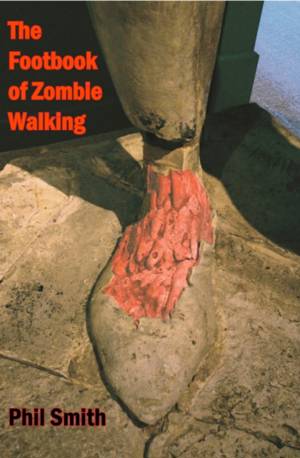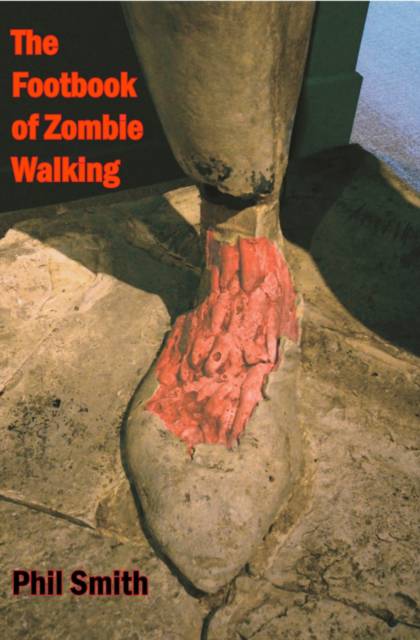
- Retrait gratuit dans votre magasin Club
- 7.000.000 titres dans notre catalogue
- Payer en toute sécurité
- Toujours un magasin près de chez vous
- Retrait gratuit dans votre magasin Club
- 7.000.0000 titres dans notre catalogue
- Payer en toute sécurité
- Toujours un magasin près de chez vous
The Footbook of Zombie Walking
How to be More Than a Survivor in an Apocalypse
Phil Smith
Livre broché | Anglais
29,95 €
+ 59 points
Description
In this Footbook, Phil Smith (Mytho, Crab Man) extends his critical account of the gentle walking arts to the predatory lurch of the living dead. The author has been a keen observer of the zombie mythos for the past 35 years, and here he draws on the mass of plots, images and metaphors that can be found swarming in zombie movies and comics. Instead of treating zombie media as a kind of parallel universe, he concentrates on the 'normality' of the zombie apocalypse - showing how zombies have been used to depict, slave labour, wage labour, the consumer, the dispossesed, the disenfranchised and the underprivileged, and then moving on to explain how much more complicated it is than that. He uses his analysis of zombie media to set out a groundbreaking way to have presence in everyday life. Invoking slowness, fragmentary consciousness, thickness and thingness, the author describes in theory and in practice, how to walk from Night to Day and away from the old Dawn into a radical nothingness. Gorehounds will never see the zombie the same way again. Drawing examples from across the spectrum of zombie media, with plenty from its margins, Phil Smith celebrates and berates the zombie; then turns it into a meditation, a manifesto, a dance score and the herald of a social movement. Starting with the three key principles of Interiority, Carnival and an End to Ends, The Footbook of Zombie Walking offers a way back to a vital Life and an art of Living. It is the next step, beyond Mythogeography, to ending media predations, putting subjectivities back on the streets and coming to be present in everyday life.
Spécifications
Parties prenantes
- Auteur(s) :
- Editeur:
Contenu
- Nombre de pages :
- 150
- Langue:
- Anglais
Caractéristiques
- EAN:
- 9781909470873
- Date de parution :
- 22-10-15
- Format:
- Livre broché
- Format numérique:
- Trade paperback (VS)
- Dimensions :
- 152 mm x 229 mm
- Poids :
- 276 g

Les avis
Nous publions uniquement les avis qui respectent les conditions requises. Consultez nos conditions pour les avis.






